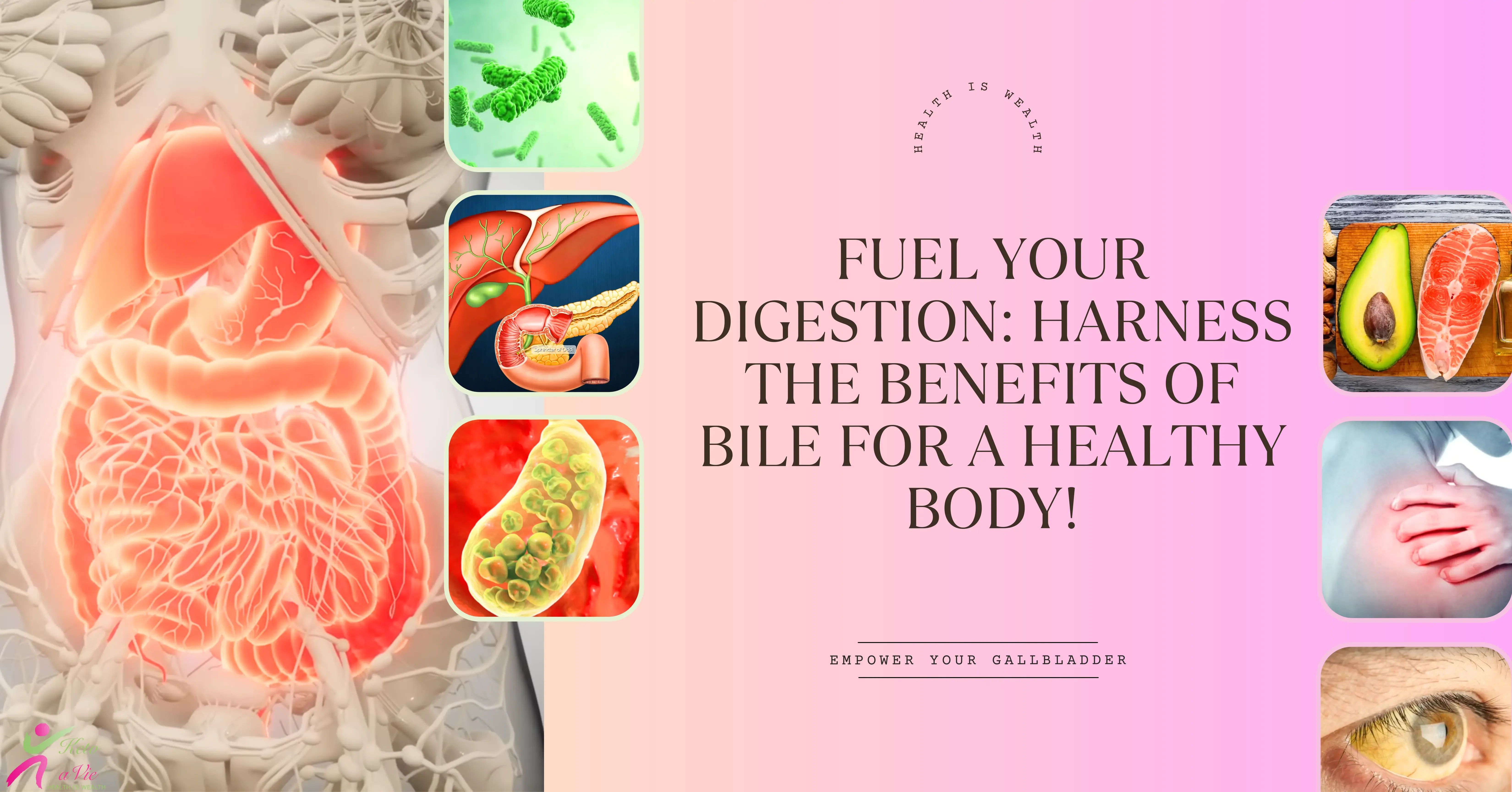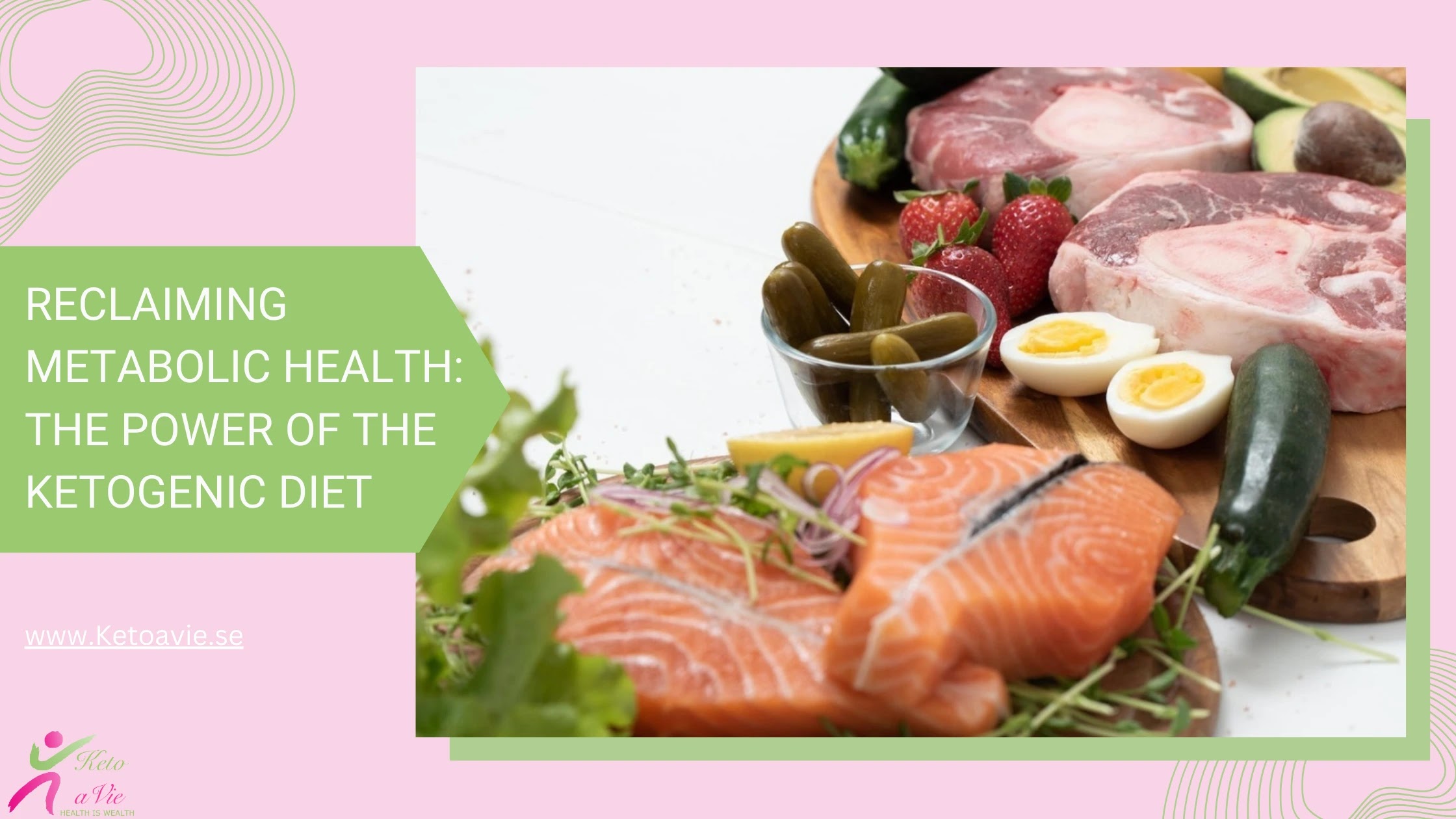The Role of Bile Salts in Digestion: Identifying Bile Deficiency and Promoting Gut Health
Proper digestion and absorption of dietary fats are crucial for maintaining optimal health. Bile, a greenish-yellow fluid produced by the liver and stored in the gallbladder, plays a pivotal role in breaking down fats and facilitating their absorption. When bile production or flow is compromised, it can lead to various health issues and nutrient deficiencies. In this article, we will explore how to recognise bile deficiency, its associated symptoms, common causes, and natural remedies to support bile production and flow.
What is Bile Salts?
Bile is a vital substance that aids in the digestion and absorption of fats. It acts as a detergent, emulsifying fats and allowing enzymes to access and break them down into smaller particles for absorption. Additionally, bile helps in the elimination of waste products, the regulation of gut microbial balance, and the removal of excess cholesterol from the body. Furthermore, it lubricates the colon, promoting smooth bowel movements.
How to Identify Bile Deficiency: Recognizing the Signs in Your Body
If you notice certain signs, it could be an indication of Bile Deficiency. These signs provide valuable insights into the insufficient production or flow of bile (*) in your body. Here are some common signs to look out for:
#1 Low in Fat-Soluble Vitamins(*)
When your body lacks enough bile, it can affect the absorption of important vitamins like A, D, E, and K. This may result in issues such as difficulty seeing in low light, bone loss, dry skin, hot flashes, chest pain, weak muscles, impaired blood clotting, and increased risk of bruising or hardening of the arteries.
#2 Jaundice(*)
A yellowish tint in your skin and eyes could be a sign of bile accumulation, known as jaundice. This occurs when the bilirubin pigment builds up in your system.
#3 Constipation(*)
If you frequently experience difficulty passing stools or have infrequent bowel movements, it could be related to inadequate bile secretion.
#4 Fatty Liver(*)
Poor fat metabolism can lead to the accumulation of fat in your liver, a condition called fatty liver. Bile deficiency can contribute to this problem.
#5 Bloating
Feeling discomfort, fullness, and distention in your abdomen, especially after meals, might be a result of impaired bile flow.
#6 Stool Floats or Light Color(*)
Pale or floating stools can indicate that your body is not producing enough bile.
#7 Gallstones(*)
The formation of hardened deposits in your gallbladder or bile ducts can be a sign of bile flow problems.
By paying attention to these signs, you can gain insights into the possibility of bile deficiency.
What Additional Symptoms Might Point to Gallbladder Issues?
In addition to the aforementioned signs of bile deficiency, individuals with impaired gallbladder function may experience the following symptoms:
- Intolerance to fatty foods
- Nausea and vomiting after consuming fatty meals
- Upper abdominal pain or discomfort, especially on the right side
- Belching or burping after meals
- Indigestion and a need for sweets after meals
- Low Vitamin K2 levels, potentially leading to hardening of the arteries
- Headaches
- Right shoulder and neck pain
- Low thyroid function
- Constipation
- High cholesterol levels
The Domino Effect: How Sluggish Bile Flow Affects Digestion and Health
1. Impaired Fat Digestion
Bile plays a crucial role in breaking down fats into smaller particles for digestion and absorption. When bile flow is sluggish, the breakdown and absorption of fats may be compromised, leading to symptoms such as bloating, indigestion, and fatty stools.
2. Nutrient Malabsorption
Sluggish bile flow can hinder the absorption of fat-soluble vitamins (A, D, E, and K) and other essential nutrients. This can potentially result in deficiencies and impact overall health and well-being.
3. Gallstone Formation
Bile stasis or sluggish bile flow increases the risk of gallstone formation. Gallstones are hardened deposits that can obstruct the bile ducts, causing pain, inflammation, and potential complications such as cholecystitis (inflammation of the gallbladder) or bile duct obstruction.
4. Jaundice
In severe cases of sluggish bile flow, jaundice can occur. Jaundice is characterized by yellowing of the skin and eyes due to the buildup of bilirubin, a yellow pigment produced during the breakdown of red blood cells.
5. Digestive Symptoms
Sluggish bile flow can contribute to digestive symptoms such as abdominal discomfort, gas, bloating, and a feeling of fullness after meals.
6. Reduced Detoxification
Bile is crucial for eliminating waste products, toxins, and excess cholesterol from the body. Impaired bile flow can compromise the body's detoxification processes, potentially impacting liver health and toxin clearance.
7. Nutritional Deficiencies
Sluggish bile flow can hinder the absorption of fat-soluble vitamins and other nutrients, leading to potential deficiencies over time.
What causes a lack of bile?
Several factors can contribute to sluggish bile flow and bile deficiency, including:Low-fat diet: Insufficient intake of dietary fats can reduce the stimulus for bile production and flow.
- Fatty liver: Excessive fat accumulation in the liver can impair its function and interfere with bile production.
- Gallbladder removal: Surgical removal of the gallbladder can disrupt the storage and controlled release of bile.
- Imbalanced gut microbiome: Disruptions in the gut bacteria balance can affect bile acid metabolism and flow.
- Gastrointestinal disorders: Inflammation, infections, or conditions affecting the liver, bile ducts, or intestines can disrupt bile production and flow.
How to Naturally Boost Bile Production and Improve Bile Flow: Effective Strategies and Remedies
#1 Consume Healthy Fats
Incorporate quality sources of dietary fats such as avocados, nuts, seeds, olive oil, coconut oil, and fatty fish rich in omega-3 fatty acids. These fats stimulate the liver to produce bile and support healthy fat digestion. Aim for a balanced intake of these fats in your meals.
#2 Include Bitter Foods
Bitter foods have long been known to stimulate bile production and aid in digestion. Add bitter greens like arugula, dandelion greens, radicchio, and kale to your salads and meals. You can also enjoy bitter herbs like dandelion root, turmeric, and ginger in teas or as spices in your dishes.
#3 Stay Hydrated
Drinking adequate amounts of water is essential for maintaining optimal bile consistency and flow. Aim to drink at least 8 glasses of water daily to support healthy liver detoxification and bile production. Proper hydration helps prevent bile from becoming thick and stagnant.
#4 Probiotics and Prebiotics
Cultivate a healthy gut microbiome by consuming probiotic-rich foods like yogurt, kefir, sauerkraut, and kimchi. These foods introduce beneficial bacteria that influence bile acid metabolism and promote healthy bile flow. Additionally, include high-fiber prebiotic-rich foods such as onions, garlic, bananas, and whole grains to support a thriving gut environment.
#5 Herbal Support
Certain herbs have a long history of traditional use in supporting liver and gallbladder function. Milk thistle, artichoke leaf, turmeric, and ginger are renowned for their ability to promote bile production, protect liver cells, and improve overall digestion. You can incorporate these herbs into your diet by using them as spices, adding them to teas, or taking them as herbal supplements.
#6 Digestive Enzymes
Consider taking digestive enzyme supplements that contain lipase, an enzyme that aids in fat digestion when bile production is compromised. These supplements can help break down fats into smaller particles, improving their absorption and reducing digestive discomfort. Consult with a healthcare professional for appropriate enzyme supplementation.
#7 Tailored Dietary Recommendations
Depending on your specific bile problem, there are dietary recommendations to support bile production and flow. To thin your bile, include cooked beets, artichokes, Jerusalem artichokes, carrots, and apples in your meals. These foods help promote a more fluid consistency of bile. To flush the liver and gallbladder of congested bile, incorporate cooked leafy greens, rocket salad, fresh lime/lemon juice, aloe vera juice, and grapefruit. These foods help stimulate bile flow and support liver detoxification.
#8 Intermittent Treatment
Incorporating intermittent fasting into your routine can be another effective strategy to enhance bile flow and support digestive health. Fasting periods give your digestive system a break and allow the gallbladder to release stored bile when it's needed most, aiding in efficient fat digestion. Consider starting with a 12-16 hour fasting window, gradually extending the fasting period as your body adapts.
#9 Supplementing for Symptomatic Relief
In some cases, supplementing with Ox Bile may be necessary to alleviate uncomfortable symptoms and support bile production. Ox Bile supplements can provide temporary relief and support while addressing underlying issues. It is recommended to consult with a healthcare professional before starting any supplementation.
Bottomline
Bile plays a crucial role in fat digestion, nutrient absorption, and overall digestive health. Bile deficiency can lead to various symptoms and health issues. However, there are natural remedies to support bile production and improve bile flow.
Incorporating healthy fats, bitter foods, and staying hydrated can stimulate bile production. Probiotics, prebiotics, and herbal support promote a healthy gut microbiome and liver function. Digestive enzymes and tailored dietary recommendations provide additional support.
By addressing bile deficiency, you can enhance digestion, nutrient absorption, and overall well-being.
Join Me on Your Transformational Path:
- Follow Me: Stay updated with the latest insights, tips, and strategies for managing insulin resistance and optimizing your metabolic health. Follow me on for daily inspiration and valuable information.
- Personalized Coaching: If you're looking for one-on-one guidance tailored to your unique needs, consider my personalized coaching services. Together, we'll create a customized plan to tackle insulin resistance and achieve your health goals.
- Get in Touch: Have questions or need more information? Don't hesitate to reach out. Feel free to contact me for inquiries or to schedule a consultation.
Transparency Note: This article may contain affiliate links, and I may earn a small commission from qualifying purchases made through these links. Rest assured, I only recommend products I have personally tested and believe can benefit your keto journey. Your support enables me to provide valuable content. Thank you for your support!
Visit my Amazon Keto Corner for Keto Essentials & Products!




Comments
Post a Comment